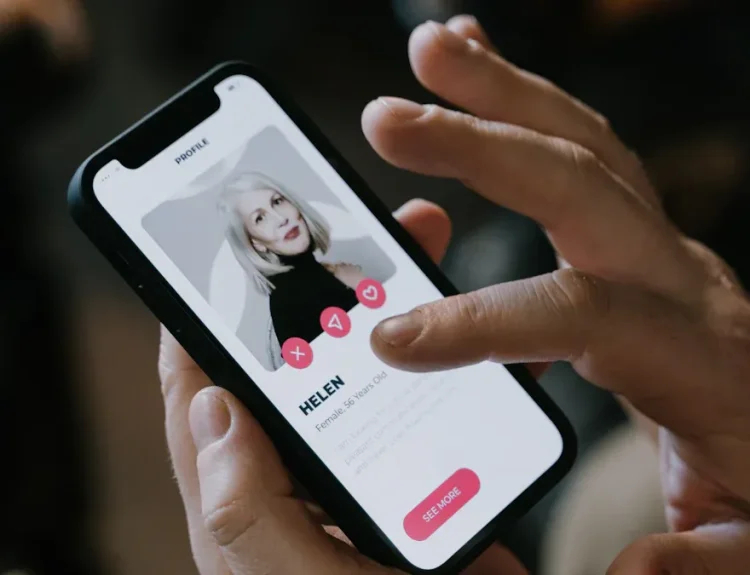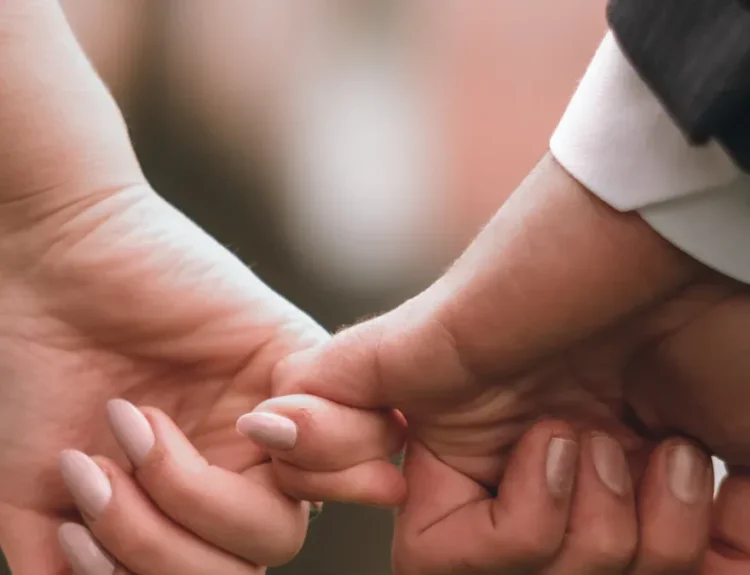Have you ever wondered if your family could pick the perfect partner for you? People around the world take different paths to love. Some trust dating apps, while others rely on Arranged Marriage. Take a look at these numbers:
| Statistic | Value |
|---|---|
| Canadians in arranged marriages | 2% |
| Respondents aged 18-34 in arranged marriages | 5% |
| Respondents finding arranged marriages acceptable | 27% |
You see big changes over time.
- In India, couples meeting on their wedding day dropped from 80-90% in the 1970s to 70-80% in the 2000s.
- In Japan, arranged marriages for women went from 60% in the 1950s to almost zero in the 2000s.
- In Togo, numbers fell from 46% in the 1960s to 24% in the 1980s.
Both practical needs and romantic dreams shape your choices today.
Key Takeaways
- Arranged marriages usually have family help. This can make them more stable. They often have fewer divorces than modern dating. Modern dating lets people choose who they want. People pick partners based on what they like. Having the same values is very important for couples. This is true in both arranged marriages and modern dating. Culture affects how people find partners. Arranged marriages follow family traditions. Modern dating cares more about what each person wants. People talk in different ways in each type. In arranged marriages, couples learn to understand each other over time. In modern dating, people talk openly from the beginning.
Arranged Marriage vs. Modern Dating

Decision Process
People choose who to marry in different ways. In many places, Arranged Marriage is still popular, especially in the countryside. More than half of marriages in the world are arranged. About 90% happen in rural areas, and 50% in cities. In rural Indonesia, families arrange marriages for money reasons. In South Korea, parents help pick partners in the countryside, but couples have more freedom now.
Modern dating is different. You pick your own partner. You might use dating apps or meet people through friends. In Chengdu, women who choose their own partners are happier in marriage than those in arranged matches. This means choosing your partner can make you happier.
In India, both ways are used. Parents use dating apps to help their kids find matches. This mixes old ways with new technology. Now, you have more power to say yes or no to a match. Self-arranged marriages often work better, especially when you can give real consent.
Family Role
Families are very important in Arranged Marriage. They look for partners who match things like religion, caste, or social status. Family approval is needed. Sometimes, matchmakers help find a partner. You might feel pressure to agree, but families want what they think is best.
Modern dating lets you choose. You decide who to date. Your family might not help at all. Dating apps use computer programs to match you with people who like the same things. You care more about feelings and what you want.
Here’s a quick look at how families and technology help pick partners:
| Aspect | Arranged Marriages | Dating Apps |
|---|---|---|
| Role of Families | Central role in partner selection | Minimal role, focus on individual choice |
| Factors Considered | Religion, caste, social status | Individual preferences, compatibility |
| Approval Requirement | Family approval is essential | No family approval needed |
| Emotional Connection | Less emphasis on emotional connection | High emphasis on emotional connections |
| Matchmaking Process | Traditional matchmaking by families | Algorithm-driven matching |
You can see that families and matchmakers lead the way in Arranged Marriage. Dating apps give you more freedom.
Compatibility
Finding a good match means checking if you fit together. In Arranged Marriage, families look at backgrounds and values. Matchmakers check if someone fits your family’s wishes. You might meet in person and talk about goals.
Modern dating uses technology. Dating apps ask about your likes, values, and lifestyle. Computer programs suggest matches based on your answers. You can chat online before meeting. Social exchange theory says you want a partner who gives you the most good things for the least trouble. You look for someone who fits your feelings and life plans.
Here’s how people check if they are a good match:
- Client Autonomy: You get to make the final choice.
- Professional Screening: Matchmakers check backgrounds and goals.
- Personalized Compatibility: You look for someone who matches your feelings and goals.
- Modern Dating: Computer programs and questions help match you with people who like the same things.
- Arranged Marriages: Family approval and support are most important, with a focus on culture and family values.
| Aspect | Arranged Marriages | Modern Dating |
|---|---|---|
| Method of Meeting | Family-led introductions | Online platforms and personal connections |
| Assessment Criteria | Family approval and community values | Algorithms, questionnaires, and personal preferences |
| Interaction Style | Face-to-face interactions with emphasis on chemistry | Virtual dating and broader choice of partners |
Both ways try to help you find a good match. They just use different ways and rules. Today, you have more chances to meet people outside your family’s group, especially if you have more education and your parents help you more.
Global Perspectives

Eastern Traditions
In many Eastern places, families are very important in relationships. People think of themselves as part of a group, not just alone. Here are some key points: Family approval is the most important thing when picking a partner. Arranged Marriage still happens a lot in East Asia. People care more about peace and stability than romantic love. You feel you must do what is best for your family. If you grow up in a group-focused culture, you learn to value loyalty and peace. Your choices often help everyone, not just you.
Western Practices
Western countries do things differently. People care about their own happiness and freedom. You get to pick who you date or marry. Look at this table:
| Aspect | Individualistic Cultures | Collectivist Cultures |
|---|---|---|
| Focus | Individual goals and needs | Group goals and welfare |
| Relationship Dynamics | Personal desires prioritized | Familial partnership emphasized |
| Divorce Perception | Higher rates, less stigma | Lower rates, divorce seen negatively |
| Communication Style | Direct communication | Indirect communication to avoid conflict |
| Decision Making | Individual-based decisions | Group-based decisions |
In Western places, people talk more openly and make their own choices. Divorce is not as big of a problem. You may feel more free, but sometimes you do not get as much help from family.
Hybrid Models
Now, many couples mix old and new ways. Families might help you meet someone, but you choose your partner. Here are some trends: Couples use both tradition and modern ideas. You respect your culture but want an equal relationship. Talking and sharing feelings are more important now. You and your partner make choices together. Studies show that couples in Arranged Marriage now spend time together before marriage. You get to know each other and build a real bond. This lets you have both family help and your own choice.
Strengths and Weaknesses
Stability
Stability is important in marriage. Many people think Arranged Marriage is strong. Families help pick your partner. This gives you support from the start. You feel part of a bigger group. Here are some reasons why these marriages are often stable:
- Families help choose your partner. This makes the relationship steady.
- Elders give advice. They want you to have a good marriage.
- Studies show couples in arranged marriages can be happy too.
Let’s look at divorce rates:
| Type of Marriage | Divorce Rate |
|---|---|
| Arranged Marriages | 4% |
| Modern Dating Marriages | 40-50% |
In India, the numbers are even more different:
| Type of Marriage | Divorce Rate |
|---|---|
| Arranged Marriages | 1% |
| Love Marriages | 35-50% |
Arranged marriages last longer. Family help and clear plans keep couples together.
Romance
Romance means different things for everyone. If you want excitement, you might like modern dating. You pick your partner because of feelings. You talk and laugh before making a big choice.
- Modern dating puts feelings first. You look for someone who makes you happy.
- Love marriages often have strong bonds and better talking.
- You feel happier when you choose your partner.
Arranged marriages focus on family and culture. You may not know your partner well at first. Over time, you can get closer and fall in love. Some couples say their feelings grow as they learn about each other. You start with respect and build romance later.
Tip: No matter how you meet, talking and respect help romance grow.
Challenges
All relationships have problems. You might feel family pressure or worry about fitting in. Here are some common issues:
| Aspect | Arranged Marriages | Modern Dating |
|---|---|---|
| Cultural Expectations | High pressure to follow family traditions | Less family pressure, more personal choice |
| Relationship Ambiguity | Clear goal of marriage | Sometimes unclear intentions |
| Matching Process | Family and cultural criteria matter | Dating apps and personal likes |
| Stigma | Some people think arranged marriages lack love | Modern dating is accepted, but can face its own stigma |
| Compatibility Importance | Families check for compatibility | You decide what matters most |
You might feel pushed to accept a match in arranged marriages. Things are changing now. You can meet your partner before marriage. You can say no if you do not feel right. Respect and the right to say no help you feel safe.
- You can say no to a match.
- Meeting before marriage helps you decide if you feel okay.
- Family and your own choice work together to build trust.
Note: Respect and choice are important in every relationship. You should feel heard and supported.
Relationship Dynamics
Expectations
If you have an arranged marriage, you expect family support. You want someone who shares your values and beliefs. Your family helps you find a partner who matches your education and money. They also look for someone with a similar worldview. People usually hope for these things:
- Safety and steady life
- Family help with big choices
- Matching values and beliefs
- Goals that make sense for the future
If you try modern dating, you hope for fun and strong feelings. You want someone who makes you feel important. Dating can seem confusing, and you might expect a lot. Sometimes, these hopes do not work out. Divorce in arranged marriages is low, about 4%. Love marriages have more divorces, close to 50%. Arranged marriages focus on practical things first. This gives you a strong start.
Communication
How you talk with your partner depends on how you meet. In arranged marriages, you learn about each other after the wedding. You find out about your partner’s habits and dreams slowly. At first, you may not talk much. Trust grows, and your talks get deeper. Family wishes can change how you talk, especially in group-focused cultures.
Modern dating is different. You share your feelings and talk openly right away. You text, call, and meet before you decide to stay together. Your talks are about your choices and feelings. Technology helps you keep in touch and say what you think. Arranged marriages are changing now. Young people have more say, and couples talk more before marriage. This mixes old ways with new ways to connect.
Outcomes
You may wonder which way brings more happiness. Couples in arranged marriages often have families that agree. This helps keep values and hopes steady. They start with lower hopes, so they feel happy when things go well. Studies show these things:
- Divorce in arranged marriages is about 4%
- Love marriages have divorce rates of 40-50%
- About 74% in arranged marriages say they are happy
- Only 64% in love marriages say the same
People who like arranged marriage think shared values and long-term goals help. Parents help you meet partners, so you can talk and see if you fit. When you have real hopes and family help, you build a lasting relationship.
Finding a Reliable Partner
Shared Values
When you look for a partner, shared values matter a lot. They shape how you make choices, set goals, and handle problems together. If you and your partner agree on what is important, you build a strong base for your relationship. Take a look at this table to see why shared values help couples last:
| Key Point | Explanation |
|---|---|
| Foundation of Compatibility | Shared values guide decisions and future plans, making your bond stronger. |
| Long-term Relationship Success | Couples with similar values feel happier and more stable together. |
| Adaptability | Core values stay the same, so you can grow together even if interests change. |
You can see that whether you meet through family or on your own, having the same values helps you face life’s ups and downs.
Support Systems
You do not have to do everything alone. A good support system makes your relationship stronger. Here are some ways support helps you:
- Family and friends give you advice and comfort when things get tough.
- Community groups let you meet others who share your interests and can help you grow.
- Professionals, like counselors, offer special help when you need it.
When you have people cheering you on, you feel more confident in your choices. Both arranged marriages and modern dating work better when you have support from those around you.
Tip: Lean on your support system when you need help. It can make a big difference.
Cultural Influence
Culture shapes how you find a partner, no matter which path you choose. In arranged marriages, families often look for someone who fits your culture, social status, and family values. Modern dating gives you more freedom, but your background still matters. Here are some ways culture plays a role:
- Families may choose partners based on tradition and shared beliefs.
- Even if you date on your own, your culture can shape what you want in a partner.
- Both ways look at more than just feelings—they consider values, goals, and backgrounds.
You can find a lasting relationship through arranged marriage or modern dating. What matters most is finding someone who shares your values, has your back, and fits your world.
You can find a loving partner in many ways. Here are some things that matter most:
| Key Factors | Arranged Marriage | Modern Dating |
|---|---|---|
| Family Involvement | High | Low |
| Personal Choice | Growing | Central |
| Shared Values | Important | Important |
| Communication | Building over time | Early and open |
Your choices depend on your culture and values. Traditions change and affect what you do. No matter if you pick Arranged Marriage or modern dating, respect is important. You should be honest with your partner. Shared goals help you build a strong relationship. 💬
FAQ
What if you want to say no to an arranged marriage?
You always have the right to say no. Many families now ask for your opinion. You should talk openly with your family. Your happiness matters most.
Can you fall in love after an arranged marriage?
Yes, you can! Many couples say love grows over time. You learn about each other and build trust. Respect and kindness help romance bloom.
Are dating apps safe for finding a partner?
Dating apps can be safe if you stay careful. Always meet in public places. Tell someone you trust about your plans. Trust your feelings if something feels wrong.
Do arranged marriages only happen in certain countries?
No, arranged marriages happen in many places. You see them in India, parts of Africa, the Middle East, and even in some Western communities. Traditions may change, but the idea is still there.
Read related resources
Dating Apps vs. Traditional Matchmaking: Global Shifts in Love










[…] Arranged Marriage vs. Modern Dating: Global Perspectives […]